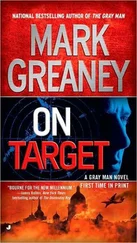“ Dongmu Hwang, someone said your father drove for Colonel Ahn.”
Hwang’s heart leapt and his eyes fought back tears of joy. Both of his parents were still living, and he knew telling them the Dae Wonsu knew something of his father’s life would bring them outrageous happiness. He bowed from his chair and struggled to keep his tone measured. “Yes, Dae Wonsu, you are correct. You bring great honor to my family by speaking of him.”
But Choi had already moved on. “The Chinese will not be returning to Chongju. We will continue on without them.”
Hwang knew every relevant fact and figure on the subject. North Korea was abundant in many valuable natural resources, but due to acute shortages of electricity, it would be impossible to exploit the mine without help.
But if not the Chinese, then who?
Brazil had some joint mining ventures here in the North, but they didn’t have the rare earth experience China did. Hwang knew Chongju would never have been discovered without China, and the exploitation of the find wouldn’t happen in his lifetime without outside help.
Hwang did not say anything upon hearing his leader’s decision. Choi cocked his head, as if noticing the delay in the response. If he took it as any sign of disrespect, Hwang knew, he would be executed. Dissent was punishable by death, and dissent was highly subjective in the DPRK, to say the least.
“You disagree with my decision?” Choi asked.
Hwang recovered quickly. He bowed. “No, Dae Wonsu. Of course, I very much agree. I am only thinking of the difficulty with the mine at Chongju. We have been partnering with the Chinese at most all of our mineral extraction sites, but at Chongju we rely on them.”
“That reliance was a mistake by your predecessor. I told him it went against Juche. He has been punished for allowing China to outshine us technologically.” Juche was the North Korean philosophy of self-reliance. This and the worship of the Chois were the quasi-official religions in the nation.
Hwang said, “Yes. Yes, of course, I agree.”
“Good.”
“But . . .”
“But?”
“We can extract the ore. Obviously our nation has the best mining capability in the world.” Hwang wouldn’t have gotten anywhere in his career without calculated exaggeration, but this was an outright lie. “But the actual processing of the rare earth minerals has always been done in China.”
“What do you mean, ‘processing’?”
Hwang was confused by the question. It had all been in his report. He said, “The ore is mined at Chongju, then delivered by truck to China. The three minerals containing rare earths—bastnäsite, monazite, and xenotime—must be identified and put through a grinding process, and then different chemicals are applied to the powder so that the rare earth oxides will separate from the other minerals. This is a highly technical process that requires geologists, chemists, computers and computer experts, and others.”
Choi said nothing.
Hwang asked, “Will we continue to ship our ore north to have it purified?”
“Of course not. We will do all this here. Not only do we have the largest reserves of minerals on the planet, we have the best scientists and the best technology with which to exploit these minerals.”
Hwang forced himself to nod. Not only did it seem as if Choi was ordering Hwang to create an industry where none had existed before, but he was also demanding he adopt a process no one in North Korea had even seen firsthand.
Choi looked up at the military men around him. Hwang did not know why, but he did not like the silence. To break it he said, “We will develop the processing capability.” He added, “We will lead the world.”
Choi smiled now, and Hwang thought the meeting was about to end. Instead, Choi said, “Very well. I will give you my guidance to ensure everything goes smoothly. Now, you might wonder how long you have. This mine will generate great riches for our nation, and we need these riches to ensure our national security. Having said this, I do not want to rush things, because I know this will require some work on your part.” He looked up as if thinking, and said, “I demand you to begin profitable mining at Chongju within . . .”
It looked to Hwang as if he was going to pick a time frame out of the air, though he didn’t seem to be even remotely aware of the complexity of the endeavor, or even what rare earth mining and processing entailed. Hwang knew that other nations had taken decades to produce their rare earth mineral industries, but he doubted Choi would give him that long. He hoped to, at least, hear him say ten to fifteen years .
Instead, Choi said, “Within eighteen months.”
The bald man’s heart sank, but he managed to keep his visage the same other than a slight trembling of his lower lip. The task before him was impossible, but he knew there would be no discussion in the matter. The Dae Wonsu had spoken.
Hwang loved the Dae Wonsu. Both the state and his parents had successfully brainwashed him into doing so, and he did not question his devotion to Choi. But even so, he knew Choi’s words to be madness.
After only the slightest hesitation, Hwang Min-ho said, “Yes. As the new director of Korea Natural Resources Trading Corporation, I promise you we will meet with great success in the endeavor.” He added, “And we would be so honored for your continued advice.”
Choi nodded with a smile that made him look genuinely pleased with the talk, and then he stood.
Hwang stood quickly himself, and began a routine of beaming grins and bows, a show of utter subservience that was only enhanced by the fact he fully expected that the man in front of him would order him sent to a labor camp in exactly eighteen months.
9
Present day
Jack Ryan, Jr., awoke in the pitch dark, his eyes thick with sleep and his mind void of any clue of where the hell he was. He heard rain pounding on a window next to him, and he thought back, tried to remember the recent past.
This feels like jet lag. Where did you go this time, Jack?
It came to him slowly because he was so damn tired. Vietnam, Hazelton, the motorcycles, the plane ride home with the smell of death, halfway around the earth, the exhaustion after landing in Baltimore the previous evening.
Only then did it hit him. He realized where he was now.
He was home. His new place, a modern condominium overlooking the Potomac River in Old Town Alexandria, Virginia. He barely knew his own home, he’d been traveling so much, so it took him a while to get his bearings. Finally, he rolled out of bed and walked toward the kitchen, hoping he could remember the way in the dark.
Jack had bought this place on Oronoco Street six weeks earlier, but it still felt brand-new to him. He’d been undergoing a battery of advanced tradecraft and operations training that took him all over the world—until last week, that is, when he and most other members of his unit rushed off to Asia on special assignment. Ryan realized he’d spent only six or seven nights at his Alexandria address since moving in, so it came as no real surprise that he’d been disoriented rising early on the morning after an exhausting flight around the world.
To combat the cobwebs in his head now he threw a pod into his coffee machine, filled the reservoir with water, flipped the device on, and stuck a cup under the spout. As he stood there with his eyes closed, the machine began to spew the hot black liquid into the cup. Jack had become a bit of a coffee snob, and he knew “pod” coffee couldn’t compete with “real” coffee in a taste contest, but in a speed race the pod won by a wide margin.
He stood in his dark kitchen and drank his coffee black and molten. It burned the back of his throat, but he needed the jolt because he could tell his brain was still somewhere back in Asia and he had to go to work today.
Читать дальше












